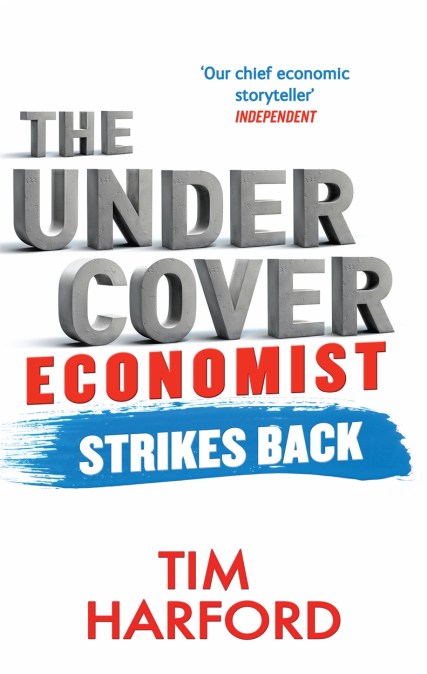A million readers bought The Undercover Economist to get the lowdown on how economics works on a small scale, in our everyday lives. Since then, economics has become big news. Crises, austerity, riots, bonuses – all are in the headlines all the time. But how does this large-scale economic world really work? What would happen if we cancelled everyone’s debt? How do you create a job? Will the BRIC countries take over the world? Asking – among many other things — what the future holds for the Euro, why the banks are still paying record bonuses and where government borrowing will take us, in The Undercover Economist Strikes Back, Tim Harford returns with his trademark clarity and wit to explain what’s really going on – and what it means for us all.
Newsletter Signup
By clicking ‘Sign Up,’ I acknowledge that I have read and agree to Hachette Book Group’s Privacy Policy and Terms of Use
Reviews
Tim Harford is a brilliant explainer of economics . . . A superb guide, whatever your level of expertise
Tim Harford is a riveting expositor of the field, lively and fair minded, and his books The Undercover Economist and its macroeconomic companion piece The Undercover Economist Strikes Back are excellent places to start, both because they are so interesting in themselves and also because they give a good initiation in how economists think and study these sorts of questions
Every Tim Harford book is cause for celebration. He makes 'the dismal science' seem like an awful lot of fun
Tim has a really exceptional talent for telling a simple and a very easily understood and yet still incredibly interesting story about economics
Tim Harford is a brilliant explainer of economics . . . beautifully clear . . . A superb guide

